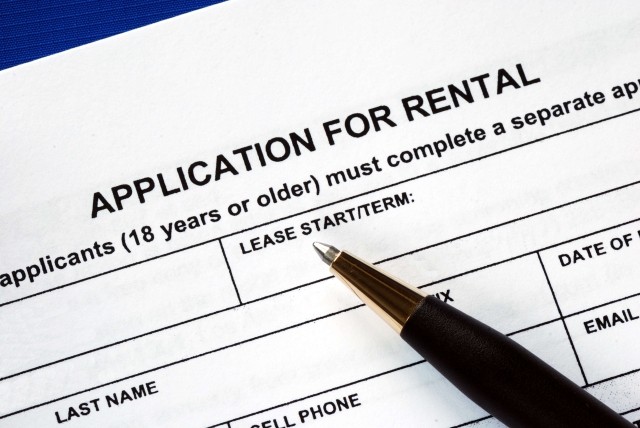Evaluating an applicant’s credit score, along with their full background check, is a great way to get a better idea of their financial history. A low credit score could mean many things, including that the applicant doesn’t pay their bills, they don’t pay them on time, or that they carry more debt than they can handle. If you list your rental property on Apartments.com, you’ll have access to a full suite of Rental Tools that provide extensive background checks that include comprehensive credit reports. You’ll be able to see a breakdown of the applicant’s total reported debt, detailed payment history for credit accounts, and employment and address history in the credit report.
What Is a Bad Credit Score?
A bad credit score oftentimes disqualifies an applicant from renting a property, whether it be from a large property management company or an independent landlord. But how do you know what credit score is considered “bad”?
The credit scale is between 300 and 850, and the general industry follows these guidelines:
- 300-629: Bad credit
- 630-689: Average credit
- 690-719: Good credit
- 720 and up: Excellent credit
Although a low credit score can raise some red flags about a tenant, it may be in your best interest to waive your credit score requirements if there are extenuating circumstances; for instance, if there is a lot of competition in your area without many applicants. This flexibility will give you a better chance of filling your vacancy. Here are five ways to minimize your risk if you choose to rent to someone with a bad credit score:
1. Find out the reason for the bad credit score
A prospective tenant may inform you of their low or bad credit score before you even run a credit check, or you won’t find out until afterwards. Either way, instead of just dismissing this applicant, ask them the reason for their low credit score.
Perhaps this renter has a short sale or a foreclosure on their record, which substantially lowers a credit score, or maybe they were running a business that went under and got into debt because of it. Maybe they were a victim of identity theft, or maybe their credit report contains an error. There are endless reasons why potentially good tenants may have a bad credit score, so it’s important to not write them off until you have a better understanding of the situation.
2. Ask for proof of income
If the applicant gives you a reason for the low credit score, then your next step is to look at their income. Simply request proof of income, which can either be in the form of pay stubs or bank statements. If they’ve been on the job for at least a year with a steady income, you may want to consider this applicant. If everything checks out on the employment front (including a call to their current employer, if you wish), there are more things you can do to feel comfortable renting to someone with a bad credit score.
3. Ask for applicant’s previous rent receipts, if applicable
If the applicant is not a first-time renter, you can ask to see proof of rent payments from the property they’re currently renting. It’s important to know if the applicant has been paying rent every month, ideally for the past year, and whether they pay on time. You can also call their current (or most recent) landlord or property manager to find out more about their rental history. If the landlord doesn’t have good things to say, and perhaps the applicant was even evicted, you may want to consider continuing your search for a tenant.
As a landlord, paying rent every month on time should be your first priority when looking for a new tenant. If an applicant can’t prove that they’ve ever done that (unless they’re a first-time renter), combined with a bad credit score, then it may be a risk to approve their application. However, if they have a steady income with proof that they pay rent on time, then this tenant’s bad credit score shouldn’t be such a determining factor in your decision.
4. Require more money upfront or a higher deposit
Those with bad credit pay a higher interest rate when they take out a loan or a credit card. The reason for this is that the odds of them defaulting are greater than that of people with good credit. So, if you normally charge first month’s rent and a security deposit to tenants that pass your credit check, you could potentially charge tenants that don’t pass first and last months’ rent plus a security deposit (or first month’s rent and a higher deposit). If you choose to charge more for the security deposit or move-in fees, be sure that you stay within any rent ceilings that might be in place in your jurisdiction.
This is a standard practice for landlords and property managers because it lowers the risk of tenants defaulting on payment. If the applicant has been repeatedly turned down for a rental due to their credit score, you may be giving them the break they needed, potentially giving you the benefit of a long-term tenant.
5. Require a co-signer
Having a person with good credit co-sign the lease gives you another avenue to collect rent if your tenant doesn’t pay. You should provide the applicant with a written notice informing them that you are not declining their application, but rather providing conditions for approval, as well as the reason that their application hasn’t yet been approved (bad credit score). If you’re listed on Apartments.com, you can opt to send applicants emails requesting that they get a co-signer before their lease can be approved. If you’re choosing to have a co-signer, you’ll want to check their credit history as well, along with their proof of income and bank statements.
Some landlords follow strict guidelines in which an applicant must meet every requirement to rent their property. However, if you show a little flexibility, you may find that just because an applicant has bad credit doesn’t mean they’re a bad tenant. As long as you screen your applicants (made easier with the help of Apartments.com online tenant screening), you should have no problem handling a tenant with bad credit and making the best of the situation.











